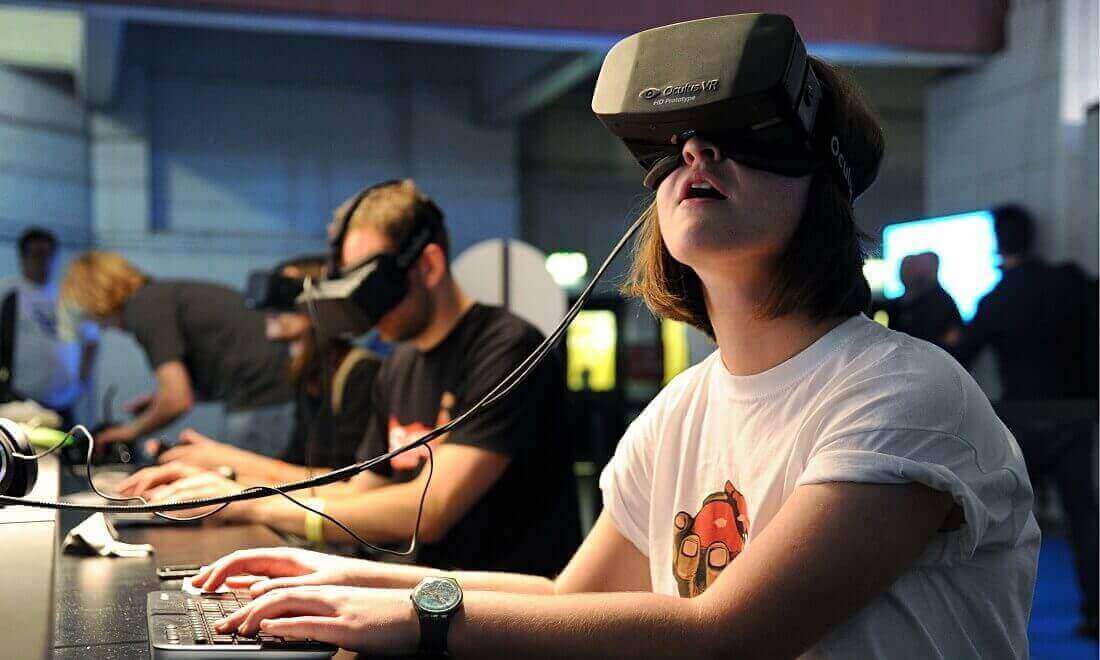Is virtual reality just another advertisement in disguise?


This post was originally published on April 20, 2016.
On March 28, Oculus Rift became the *first virtual reality device to hit the market. At a retail price of $599, it offers an OLED display, a 90 HZ refresh rate, a whopping 110” field of view, and a one-way ticket to your private life.
(*Sorry, Virtual Boy doesn’t count.)
The Oculus Rift was already creating a sizeable buzz before its release. Unfortunately, the hubbub was less about the system itself and more about its convoluted, abstract, and downright scary terms of service.
Is this the real life? Or is this just fantasy?
Ever since Oculus was acquired by Facebook, there's been a growing concern we might see a shift from an exciting new era of cyber gaming to an age of oppressive cyber surveillance. Unfortunately, it's looking like we’re heading towards the latter, as Oculus will collect user information to send to Facebook and other companies.
The terms of service, which can be found here, vaguely state which type of data Oculus will collect, how it will collect it, and how it will be sent to undisclosed “third parties.”

When it comes to mining data, Facebook’s a pro. The social media giant generates more than $5.6 billion a year in ad revenue alone.
More problems than just a nagging headache
Virtual reality is a new genre, so the extent as to what information can be gathered is still unclear. What we do know is that the Rift can detect your height, weight, sex, how you move, what you look at, and for how long. Couple that with all the personal details Facebook already owns and the possibilities of data mining are limitless.

Oculus Rift is setting the stage, and the way they conduct business will echo for years to come. As other VR companies start entering the scene, they’ll likely replicate the same business model—creating one giant virtual advertisement, or worse, a virtual surveillance state.
You’re being watched, and it’s worse than you think
If you think this sounds a little too familiar, you’re right: Xbox’s Kinect device had a similar scandal a few years ago. Weeks before the Xbox One’s release, a policy detailing how the system would stay connected even when people weren’t using it surfaced.
To give you a little background, Microsoft’s Kinect is a device that recognizes your voice and face to adhere to voice-enabled commands. To do so, it requires a microphone and a camera—both of which are ALWAYS ON.
Like Kinect, the Oculus is always connected to the Internet, constantly monitoring your activity, handing your info over to Facebook.
XBox users revolted, and many jumped ship to Sony’s PS4 (which became the fastest-selling Sony console ever). Microsoft did their best to reassure customers they wouldn’t be spied on, but the damage was already done.
Just the very thought of a gaming system snooping on its users led to decreased sales and a bruised public image. Oculus should take note.
Virtual reality has a very real future
Palmer Luckey, the Oculus' creator, began working on virtual technology when he was only 17. He started building the original Oculus prototype in his parents’ garage in California shortly after.
Speaking to Kelly McEvers in an NPR interview, Luckey says:
“I think people are going to spend more time communicating in VR. Today, the best way to communicate with someone is still face to face, but VR has the potential to change that.”
We’re already beginning to see the change. Just last week NYC’s Tribeca Film Festival offered film aficionados an astounding 23 different virtual-reality short film and art exhibits. From games to movies to, well, basically anything you can think of, we’ll soon be able to experience it in VR.
That’s why Facebook’s involvement is so important, and why if these allegations are true, it could paint a much darker virtual reality than we all expected.
Featured image: Michael Bowles/REX
Oculus VR image: "Sample screen capture of Oculus Rift development kit" by Ats Kurvet is licensed under CC BY-SA 4.0.
Take the first step to protect yourself online. Try ExpressVPN risk-free.
Get ExpressVPN


















Comments
lol at the girl in the picture